President Joe Biden “willfully” retained and disclosed highly classified materials when he was a private citizen, including documents about military and foreign policy in Afghanistan and other sensitive national security matters, according to a Justice Department report that nonetheless says no criminal charges are warranted for him or anyone else.
Special Counsel Robert Hur concluded that due to Biden’s age and apparent memory limitations, it would be challenging to convince a jury to convict him of a serious felony requiring a mental state of willfulness.
Hur’s report, released on Thursday, paints a picture of Biden’s memory in less than flattering terms, describing it as having “significant limitations.” The report details instances where Biden struggled to recall key events, including forgetting when he served as vice president and the timing of his son Beau’s passing.
The investigation highlighted a recorded conversation from 2017 between Biden and Mark Zwonitzer, a collaborator on Biden’s memoirs, revealing Biden’s difficulty in remembering details and events.
Furthermore, during his interview with investigators, Biden’s memory appeared to worsen, leading to concerns about his ability to recall crucial information.
One noteworthy exchange in the report described Biden’s confusion about his tenure as vice president, asking, “When did I stop being Vice President?” and “Am I still Vice President?”
Trump’s camp responded to Hur’s report in typical fashion, releasing a statement saying, “If you’re too senile to stand trial, you’re too senile to be president. Joe Biden is unfit to lead this nation.”
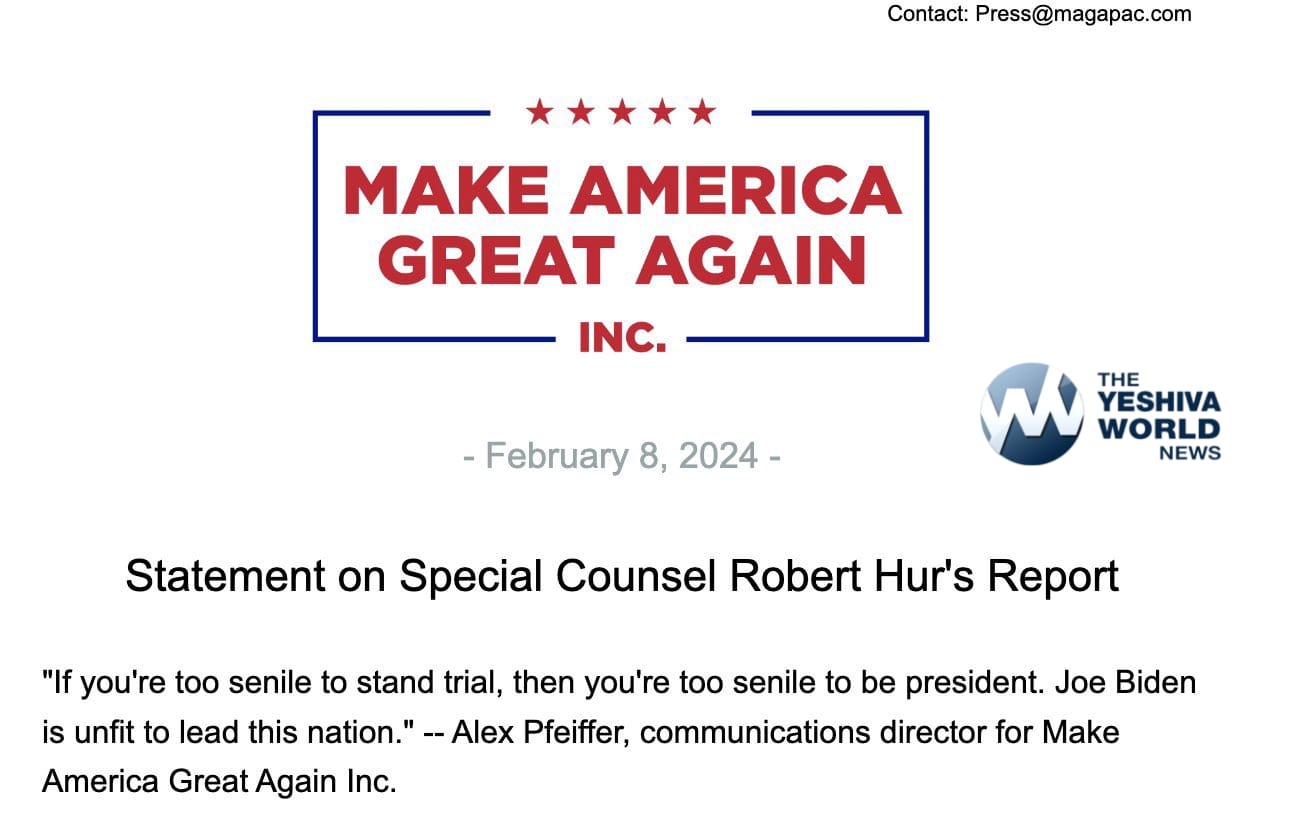
“Our investigation uncovered evidence that President Biden willfully retained and disclosed classified materials after his vice presidency when he was a private citizen,” Hur wrote.
Hur’s report says evidence suggests that many of the classified documents recovered by investigators at the Penn Biden Center, in parts of Biden’s Delaware home, and in his Senate papers at the University of Delaware were retained by “mistake.”
Biden said in a statement that he was “pleased” the special counsel had “reached the conclusion I believed all along they would reach — that there would be no charges brought in this case and the matter is now closed.”
He made a point of saying that he sat for five hours of in-person interviews over two days on Oct. 8 and 9, “even though Israel had just been attacked on October 7th and I was in the middle of handling an international crisis.”
“I just believed that’s what I owed the American people so they could know no charges would be brought and the matter closed,” Biden said.
The report comes after a yearlong investigation into the improper retention of classified documents by Biden, from his time as a senator and as vice president, that were found at his Delaware home, as well as at a private office that he used in between his service in the Obama administration and becoming president.
The investigation into Biden is separate from special counsel Jack Smith’s inquiry into the handling of classified documents by Trump after Trump left the White House. Smith’s team has charged Trump with illegally retaining top secret records at Mar-a-Lago home and then obstructing government efforts to get them back. Trump has said he did nothing wrong.
After Biden’s lawyers uncovered classified documents at his former office, Biden’s representatives promptly contacted the National Archives to arrange their return to the government. The National Archives notified the FBI, which opened an investigation. Biden made his homes available to agents to conduct thorough searches, and that is how the most sensitive documents came to the attention of the Justice Department.
Hur assessed that the evidence did not support that Biden willfully retained some of the classified documents that were recovered — including the ones at the Penn Biden Center that sparked the probe.
Biden could not have been prosecuted as a sitting president, but Hur’s report states that he would not recommend charges against Biden regardless.
“We would reach the same conclusion even if Department of Justice policy did not foreclose criminal charges against a sitting president,” the report said.
Part of the report centers on Biden’s handling of classified documents about Afghanistan — specifically, the Obama administration’s decision to send additional troops there — that he retained after he left office as vice president in his Delaware home. Biden preserved materials documenting his opposition to the troop surge, including a 2009 classified handwritten memo to then-President Barack Obama.
“These materials were proof of the stand Mr. Biden took in what he regarded as among the most important decisions of his vice presidency,” the report said.
The documents have classification markings up to the Top Secret/Sensitive Compartmented Information Level and were found in a box in Biden’s Delaware garage “that contained other materials of great significance to him and that he appears to have personally used and accessed.”
Photographs included in the report showed some of the classified Afghanistan documents stored in a worn cardboard box stored in his garage, apparently in a loose collection with other household items, including a ladder and a wicker basket.
Classified documents from the Obama administration were also found in Biden’s basement den, according to the report. Classified documents from his time in the Senate in the 1970s and 1980s were also found in his garage.
Despite signs that Biden knowingly retained and disclosed classified materials, Hur’s report said criminal charges were not merited for multiple reasons. Those include the fact that as vice president, and during his subsequent presidency when the Afghanistan records were found, “he had the authority to keep classified documents at his home.”
As part of the probe, investigators reviewed a recording of a February 2017 conversation between Biden and his ghostwriter in which, referring to the 2009 memo to Obama, Biden said that he had “just found all the classified stuff downstairs.” Biden was renting a home in Virginia at the time and consolidated his belongings in Delaware when he moved out in 2019. Prosecutors believe that Biden’s comment was a reference to the same classified records that FBI agents later found in his Delaware home.
Though the best case for charges could involve his possession of the Afghanistan documents as a private citizen, prosecutors said, it was possible that Biden could have found those records at his Virginia home in 2017 and then forgotten about them soon after.
“This could convince some reasonable jurors that he did not retain them willfully,” the report.
The report said there was some evidence to suggest that Biden knew he could not keep classified handwritten notes at home after leaving office, citing his deep familiarity “with the measures taken to safeguard classified information and the need for those measures to prevent harm to national security.” Yet his kept notebooks containing classified information in unlocked drawers at home.
“He had strong motivations to do so and to ignore the rules for properly handing the classified information in his notebooks,” the report said. “He consulted the notebooks liberally during hours of discussions with his ghostwriter and viewed them as highly private and valued possessions with which he was unwilling to part.”
While the report removes legal jeopardy for the president, it is nonetheless is an embarrassment for Biden, who placed competency and experience at the core of his rationale to voters to send him to the Oval Office.
“Mr. Biden was known to remove and keep classified material from his briefing books for future use, and his staff struggled — and sometimes failed — to retrieve those materials,” the report states. “And there was no procedure at all for tracking some of the classified material Mr. Biden received outside of his briefing books”
In declining to prosecute Biden, Hur’s office also cited what it said was Biden’s “limited memory” both during his 2017 recorded conversations with the ghostwriter and in an interview with investigators last year.
“Given Mr. Biden’s limited precision and recall during his interviews with his ghostwriter and with our office, jurors may hesitate to place too much evidentiary weight on a single eight-word utterance to his ghostwriter about finding classified documents in Virginia, in the absence of other, more direct evidence.”
“We have also considered that, at trial, Mr. Biden would likely present himself to a jury, as he did during our interview of him, as a sympathetic, well-meaning, elderly man with a poor memory,” investigators wrote.
There is recent Justice Department precedence for criminal charges against individuals accused of sharing classified information with biographers or ghostwriters. Gen. David Petraeus pleaded guilty to doing exactly that in 2015 and was sentenced to probation.
Yet in this instance, prosecutors say, Biden could have plausibly believed that the notebooks were his personal property and belonged to him, even if they contained classified information.
In an interview with prosecutors, the report said, Biden was emphatic with investigators that the notebooks were “my property” and that “every president before me has done the exact same thing.”
White House lawyer Richard Sauber said Biden takes classified information seriously and “strives to protect it,” but making mistakes when packing documents at the end of an administration can be a common occurrence, as the report noted.
“We disagree with a number of inaccurate and inappropriate comments in the special counsel’s report. Nonetheless, the most important decision the special counsel made — that no charges are warranted — is firmly based on the facts and evidence,” Sauber said.
Biden’s personal attorney Bob Bauer accused the special counsel of violating “well-established’ norms and “trashing” the president.
“The special counsel could not refrain from investigative excess, perhaps unsurprising given the intense pressures of the current political environment. Whatever the impact of those pressures on the final report, it flouts department regulations and norms,” he said in a statement.
Trump responded to the report in a statement as he traveled to Nevada for Thursday evening’s Republican caucuses. “THIS IS A TWO-TIERED SYSTEM OF JUSTICE!” he said in a statement, claiming the Biden case was “100 times different and more severe than mine.”
“I did nothing wrong, and I cooperated far more. What Biden did is outrageously criminal – He had 50 years of documents, 50 times more than I had, and “WILLFULLY RETAINED” them,” Trump added, once again claiming “ELECTION INTERFERENCE!”
White House lawyers and Biden’s personal attorney were given the opportunity to review and comment on the report. Biden chose not to assert executive privilege over any portion of the report, White House counsel’s office spokesman Ian Sams said.
Attorney General Merrick Garland in January 2023 named Hur, a former U.S. attorney for Maryland, to handle the politically sensitive Justice Department inquiry in an attempt to avoid conflicts of interest. It is one of three recent Justice Department investigations into the handling of classified documents by politically prominent figures.
(AP/YWN)

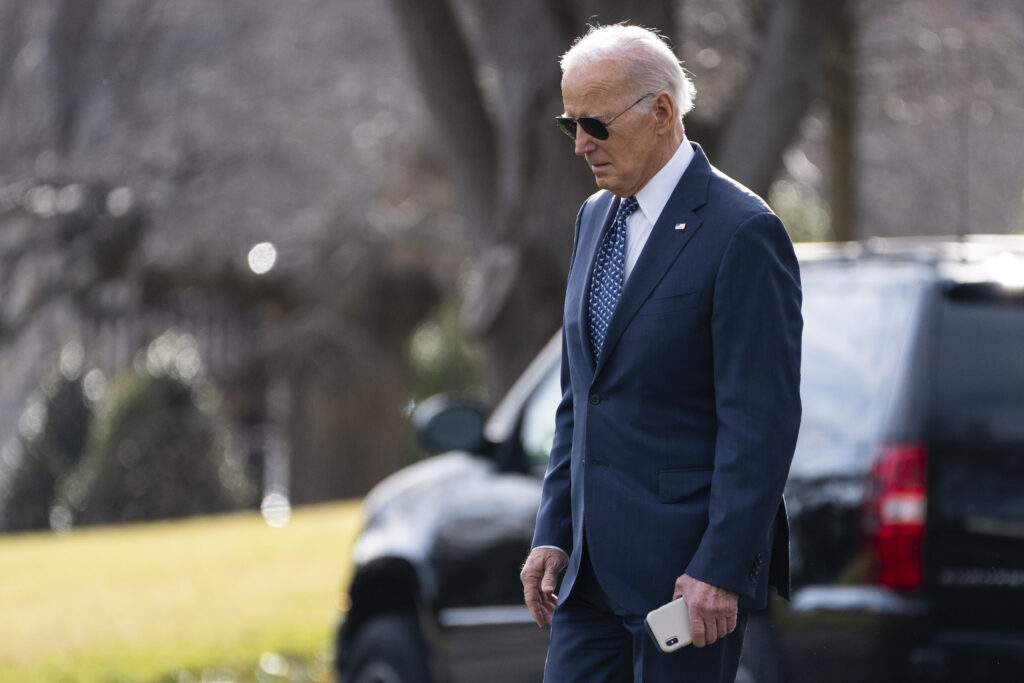


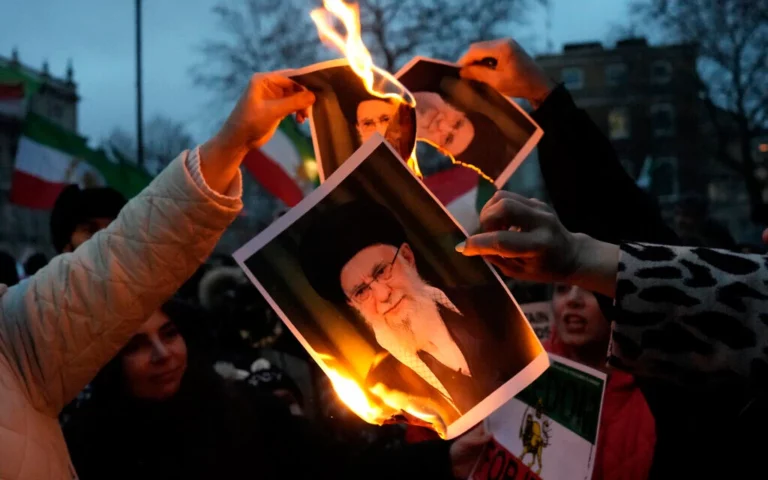


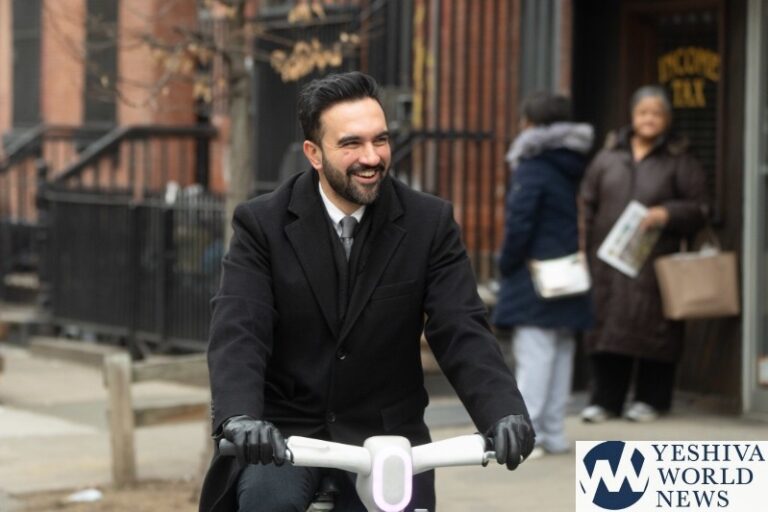
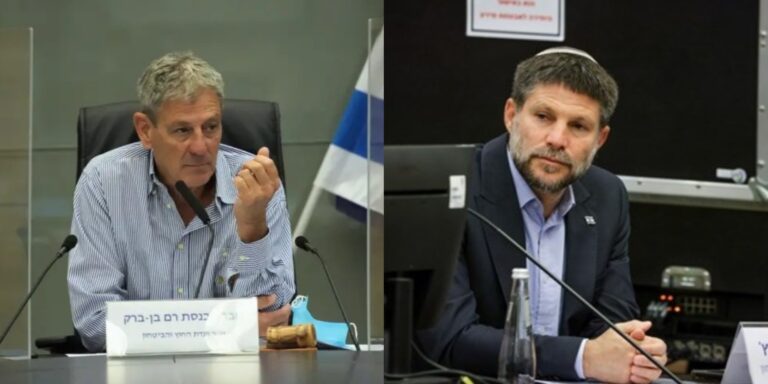
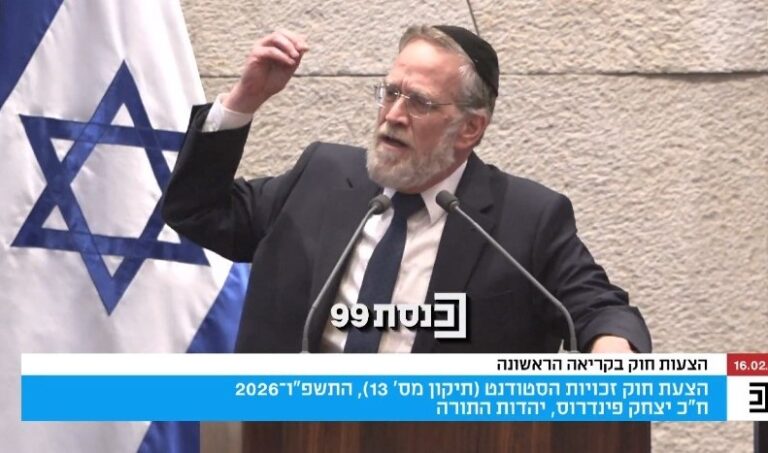
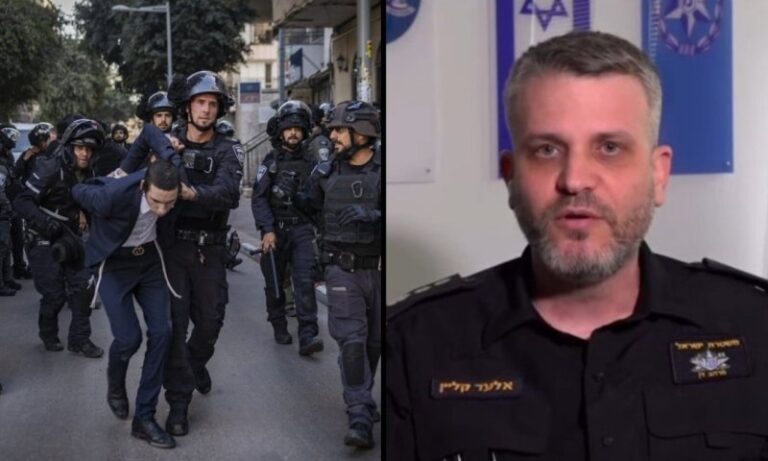
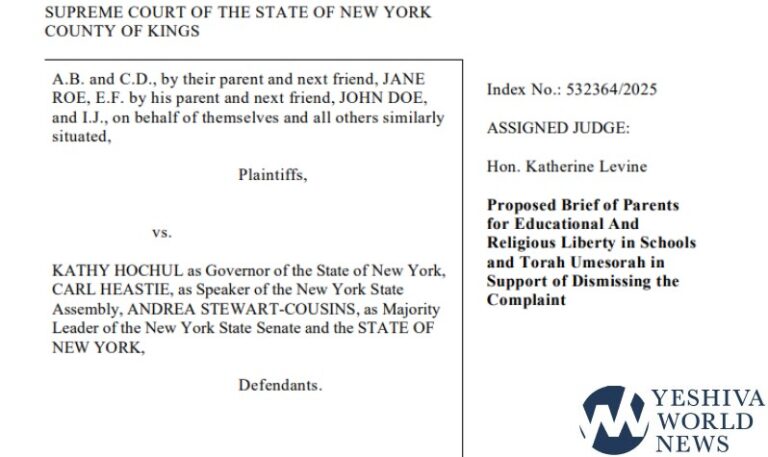
2 Responses
Headlines should read:
“Biden doesn’t recall memory lapses”
אלה אלהיך Democrats